Transition Leadership Stories
Original voices, thoughts, approaches and accomplishments from leaders in transition.
Profiling diverse perspectives on the transition to a low carbon, socially equitable economy from business, academia, government and the non-profit community.
Transition Leadership Series: Episode 2
What is the connection between major financial institutions and the fight against rising temperatures? In a revolutionary interview, Kristalina Georgieva, the newly appointed managing director of the International Monetary Fund (IMF), described the two as inextricably linked. She affirms; “The climate crisis and financial stability are linked… because if left unattended, global heating will threaten financial stability.”
Coming from the representative for one of the most powerful financial institutions in the world, this is a monumental declaration, one which highlights the rise of ‘sustainable finance’ on the global stage. At the Academy for Sustainable Innovation’s (ASI) Masterclass, students were presented with a comprehensive overview of the subject from established economists, academics, scientists and business professionals who presented their most innovative financial solutions to the climate challenge. Today, we explore them in this, the second installment of the ASI Transition Leadership blog series: Sustainable Finance.
The Challenge

ASI convened a group of experts focused squarely on channeling financial sector expertise and influence towards environmental challenges and opportunities. Among the superstar lineup was Sandra Odendahl, Vice President of Social Impact and Sustainability at Scotiabank. Sandra joined the ASI Masterclass to discuss the challenge of capitalizing on CleanTech. “Especially in early stage investing,” she says, “clean-tech is notoriously hard to invest in because of the high capital costs.”
A company which focuses on the decarbonization of the fossil fuel industry may not seem as exciting to an investor as a high-speed, consumer-facing app in the digital age, Sandra explains, but “…Right now we have a climate problem and we have a lot of industry that we [business and society] continue to need… And so, we really need to solve the problem of [running our economy] with less energy.” This transition towards a lower-carbon, lower-energy system requires a shift of investment away from fossil fuels and towards renewables. In fact, the Climate Policy Initiative, one of the world’s most reputable environmental think tanks, estimates that the energy sector (including energy use in power, transportation, and buildings) would require over $1tn a year internationally through to 2050 to operate at a low-carbon mandate.[1]
Investments driving the transition forward
The good news is that along with the IMF, mainstream financial firms are rising to meet the growing client demand for and interest in impact investing; pursuing investments with quantifiable environmental and social returns.
HSBC for example, is shooting to be a global leader in sustainable finance, delivering a series of products for the values-driven client. Dana Krechowitz, senior sustainable finance manager at HSBC, joined the ASI Masterclass to discuss the bank’s forward-thinking initiatives, explaining how she believes the green initiative “meets a real business need.” HSBC’s latest Navigator survey revealed that 95% of Canadian businesses are feeling the pressure to be more sustainable. Their top motivations in implementing sustainability practices are to grow sales (29%), improve their employer brand (24%) or improve transparency and traceability of their products (22%).
Financial firms around the world are offering innovative new products across asset classes. From brand boosting to risk management, new indicators of successful performance can be found in Environmental, Social and Governance (ESG) standards. A forward-thinking client can invest directly in Socially Responsible Investment Portfolios, follow Walmart’s example and pursue Sustainable Supply Chain Financing, or sift through a whole new portfolio of “green bonds”, the proceeds of which directly benefit environmental projects. The most recent addition to HSBC’s line of Canadian products is the Green Loans for Canadian businesses, a product which allows corporate customers to showcase their green credentials by demonstrating that a portion of their funding is ring-fenced for green activities. The trend is clear: the newest financial products have more to offer than financial returns.
The Future of Finance
These firms are not alone in their actions. When predicting the future of finance, one has but to consider the numbers. A recent report by Corporate Knights affirmed the growing trend, noting a whopping USD $10 trillion worth of private ‘green’ investments globally over the last decade. If we continue to direct investment towards sustainable infrastructure, carbon sequestering technologies and community-based climate solutions as they and many other business leaders suggest, we may just meet our 2 degree targets.
“The green initiative is not one of idealism, but of ever-pressing importance and immediacy,” reads HSBC’s 2017 Green Bond Report, and it seems that finally, market signals are beginning to reflect that urgency. With ever increasing returns and exciting pathways to support emergent innovations, the opportunities to engage are more compelling than ever before.
WATCH: #TransitionTuesday One-minute Video: Sandra Odendahl: The challenge of capitalizing clean tech
[1] Climate Policy Initiative, Global Landscape of Climate Finance. October 2017

Nicole Doray
Manager, Social Impact & Strategic Innovation


